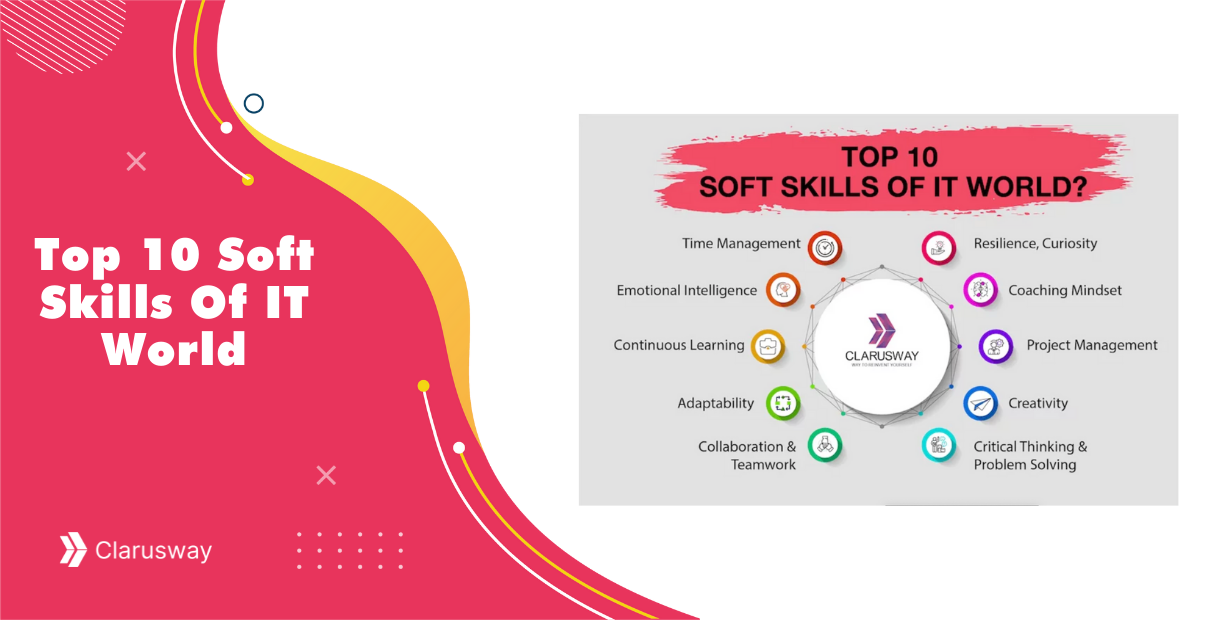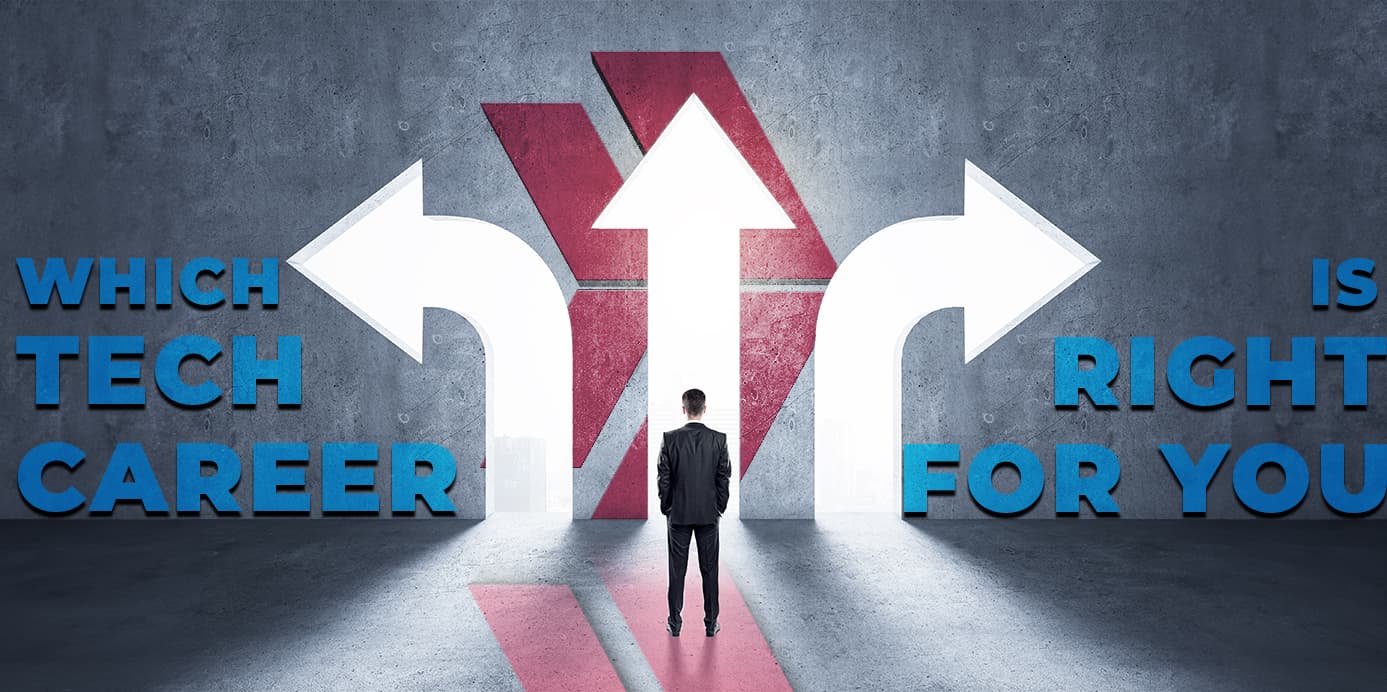Salesforce Commerce Cloud is a comprehensive solution for businesses looking to enhance their e-commerce operations. It’s a tool designed to boost sales, improve customer experiences, and enable global scalability.
In the dynamic world of e-commerce, the ability to learn quickly, understand deeply, and prepare effectively for market changes is crucial for business success. Salesforce Commerce Cloud emerges as a key player in this realm, offering an integrated solution that empowers businesses to adapt and thrive. This platform not only allows you to create and manage your online presence with ease but also equips you with the tools to understand your customers’ needs and prepare for future trends.
Salesforce powers commerce for more than two billion consumers with 99.99% historical uptime, and Salesforce customers saw a 29% increase in digital revenue by shifting from legacy channels, per the Salesforce Commerce Platform Metrics.
In this blog post, we will explore the intricacies of Salesforce Commerce Cloud, guiding you through its features, benefits, and the potential it holds to transform your e-commerce strategy.
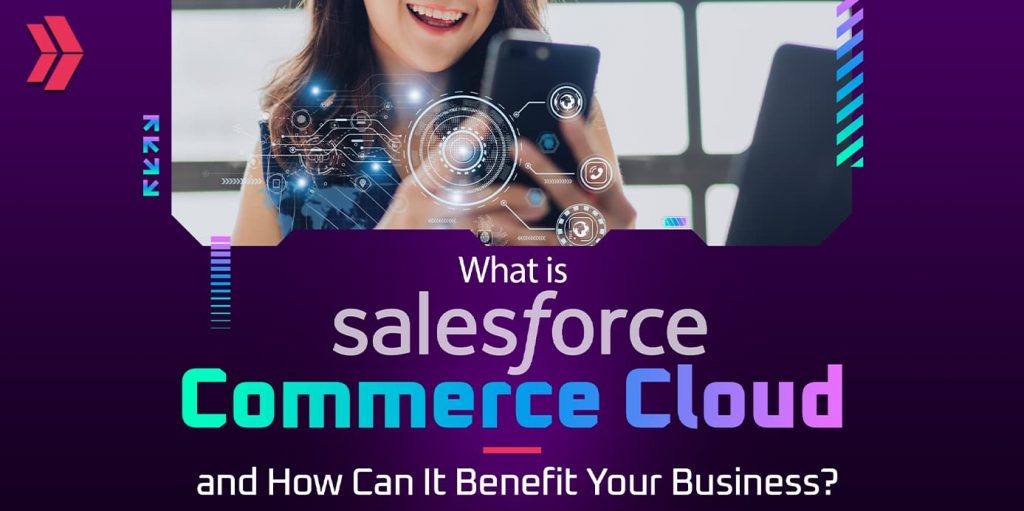
What Exactly is Salesforce Commerce Cloud?
Salesforce Commerce Cloud, formerly known as Demandware, is a cloud-based platform that facilitates the creation, management, and optimization of an online store. It’s a part of Salesforce Customer 360, integrating sales, marketing, service, and commerce for a unified customer view.
How Does Salesforce Commerce Cloud Enhance E-commerce?
Powered by AI and data analytics, Salesforce Commerce Cloud is renowned for its reliability and effectiveness in increasing digital revenue, making it a top choice for businesses aiming to advance their online commerce presence.
What Features Does Salesforce Commerce Cloud Offer?
Salesforce Commerce Cloud is equipped with a variety of features to bolster e-commerce businesses. Here are the main 4 Salesforce Commerce Cloud features:
- Einstein AI
- Commerce APIs
- Storefront Reference Architecture
- B2C Commerce Developer Center
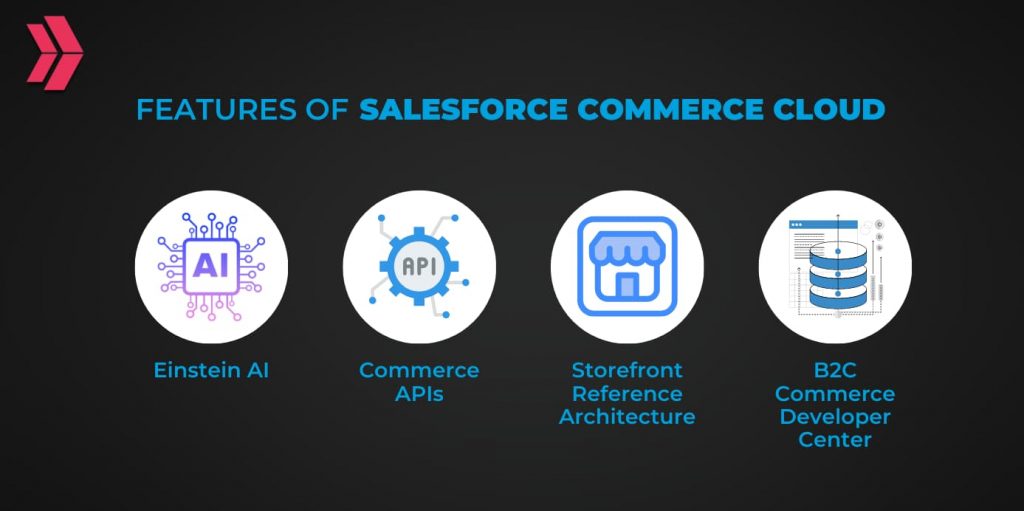
How Does Einstein AI Contribute to Commerce Cloud?
Einstein AI, the intelligence engine within Salesforce Commerce Cloud, leverages machine learning to optimize various aspects of e-commerce like product recommendations and inventory management.
What Role Do Commerce APIs Play?
Commerce APIs facilitate integration with other systems and services, enhancing the functionality and customizability of your online store.
What is the Storefront Reference Architecture?
This set of guidelines and best practices assists in designing and developing your online store, offering templates and components for streamlined development.
What is the B2C Commerce Developer Center?
A resource hub providing tools, documentation, and support for developing and optimizing your online store using Salesforce Commerce Cloud.
What are The Key Benefits of Salesforce Commerce Cloud?
Salesforce Commerce Cloud offers significant advantages for your e-commerce business. Here are the 3 main benefits of Salesforce Commerce Cloud:
- Faster time to market
- Improved customer experience
- Increased revenue and profitability
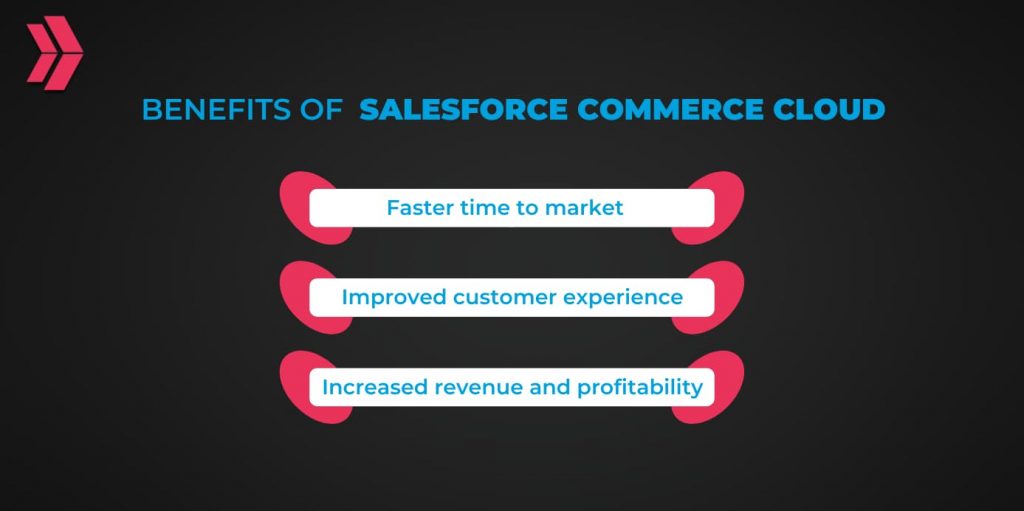
How Does Commerce Cloud Speed Up Market Entry?
The platform’s cloud-based infrastructure and scalability allow for quick launch and efficient handling of traffic and transactions, reducing time-to-market significantly.
How Does It Enhance Customer Experience?
Salesforce Commerce Cloud provides a personalized and seamless shopping experience, utilizing AI for customization and integrated marketing communication.
Can It Boost Revenue and Profitability?
Yes, it can. Optimization features in Salesforce Commerce Cloud aid in increasing average order values and repeat purchases, thereby enhancing revenue and profitability.
Which Industries Can Utilize Salesforce Commerce Cloud?
Salesforce Commerce Cloud is versatile, suitable for various industries, from retail and fashion to education and financial services.
Some of the industries that use Salesforce Commerce Cloud are:
- Retail
- Fashion
- Beauty
- Health
- Sports
- Entertainment
- Travel
- Education
- Financial Services
- Manufacturing
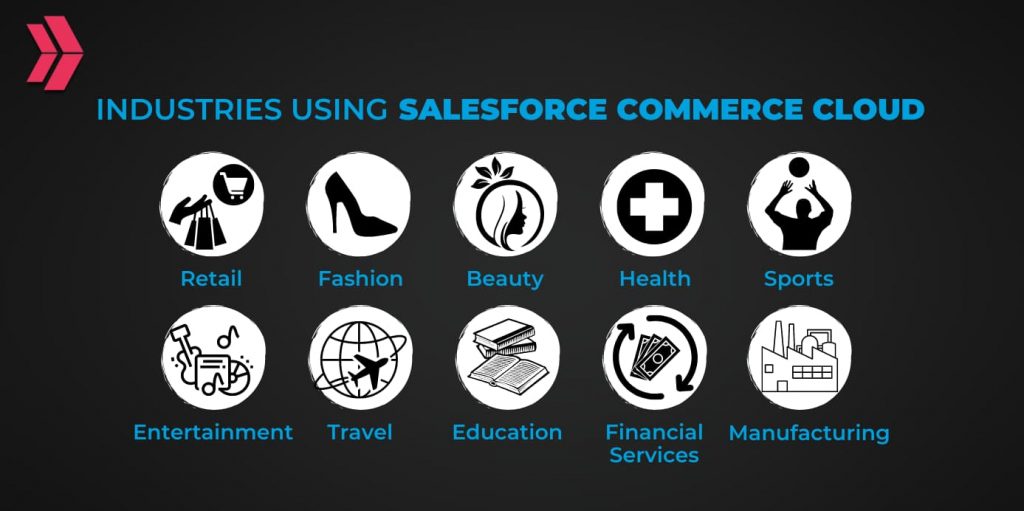
Are There Successful Implementations of Salesforce Commerce Cloud?
Yes. Many well-known brands and companies power their online stores by using Salesforce Commerce Cloud. 3 of the most famous brands are:
- Adidas: The global sportswear brand uses Salesforce Commerce Cloud to create a unified and personalized shopping experience for its customers across 40 countries and 20 languages. It also uses Salesforce Marketing Cloud to deliver relevant and engaging marketing campaigns across email, social media, and mobile.
- L’Oréal: The world’s largest cosmetics company uses Salesforce Commerce Cloud to create a digital beauty platform that connects its customers with its products, services, and experts. It also uses Einstein AI to provide personalized product recommendations, beauty tips, and virtual try-ons.
- Godiva: The premium chocolate brand uses Salesforce Commerce Cloud to create a global e-commerce platform that offers a rich and indulgent shopping experience for its customers. It also uses Einstein AI to provide dynamic pricing, product recommendations, and loyalty rewards.
What Does Salesforce Commerce Cloud Cost?
Salesforce Commerce Cloud pricing is based on a revenue-sharing model, varying according to business size, features used, and contractual terms.
To get an accurate estimate of Salesforce Commerce Cloud pricing for an Ecommerce business, one should contact Salesforce directly and request a quote based on specific needs and goals.
FAQ About Salesforce Commerce Cloud
Can Salesforce Commerce Cloud Integrate with Other Salesforce Products?
Yes, it can be integrated with various Salesforce products such as Salesforce Marketing Cloud, Salesforce Service Cloud, Salesforce Sales Cloud, etc for a comprehensive CRM system.
Is It Suitable for International Business Expansion?
Yes, Salesforce Commerce Cloud supports multiple currencies, languages, and other international business needs, making it ideal for global expansion.
Does It Cater to Both B2C and B2B E-commerce?
Yes, The platform is designed for both B2C (Business-to-Consumer) and B2B (Business-to-Business) e-commerce, offering specific solutions for each. For example, Salesforce B2C Commerce Cloud can be used to create online stores that sell directly to consumers, or Salesforce B2B Commerce Cloud can be used to create online stores that sell to other businesses or organizations.
What Job Opportunities Exist in Salesforce Commerce Cloud?
The common Salesforce Commerce Cloud jobs are Salesforce Commerce Cloud Developer, Salesforce Commerce Cloud Consultant, and Salesforce Commerce Cloud Administrator. To gain a clearer understanding of what each of these positions entails, exploring detailed descriptions of Salesforce roles and responsibilities can provide valuable insights into the specific skills and expertise required for success in these career paths.
What Training and Resources Are Available?
Salesforce provides comprehensive Salesforce commerce cloud documentation. As the official learning platform, Salesforce Commerce Cloud Trailhead offers free online courses on various topics related to Salesforce products at your own pace. After completing the primary phase of salesforce commerce cloud training, as mentioned previously, the phase of salesforce commerce cloud certification begins.
Training and certification options are mentioned above to acquire skills and learn Salesforce Commerce Cloud. Start your Salesforce training off on the right foot by reading the Clarusway manual.

